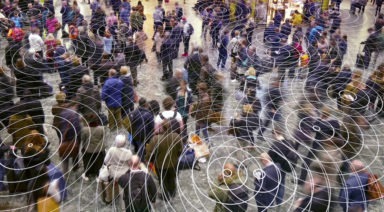Technology: Friend or Foe?

Whether or not you appreciate technology, it’s a major part of our world and it is here to stay. Technology has been with humanity since the beginning. As human beings, we have a drive to engage technology to change our world, tweak the status quo and improve on anything we possibly can, as often as we can. Many people wonder if technology is hurting us, rather than helping. There is no easy answer to that question. One thing that does seem certain is that any technological advance that has changed the human experience has been both detested and loved.
Technology is changing at an astounding rate. We’ve reached a point of planned and unplanned obsolescence. People are afraid to buy technological products for fear that today’s super gizmo will become tomorrow’s artifact. This isn’t an unrealistic fear, as anyone who’s bought a new gadget, only to have it completely outdated within a few weeks, can attest to. Today’s modern phones change like the phases of the moon, so much so that providers have insurance plans specifically designed to allow a disgruntled owner to replace an outdated phone with the latest model.
Ancient Technology: From Monuments to Artwork
We tend to have an elitist view of our technological prowess and can’t imagine that our ancient ancestors could possess our same ability for discovery. Viewing an ancient monument, accomplishment, or artwork, raises incredulity as to the possibility of it having been created by ancient humans. This is a narrow point of view. I’ve seen ancient statues with surfaces as smooth as glass. Lasers? No; they used sand and hard, hard work.
I believe the Pyramids of Egypt were built by Egyptians with ancient technology. The quarries have been identified, as have been the roads over which the mighty blocks were dragged. Hammers and chisels have been found; many of them made of copper and annealed in such a way that they were capable of cutting granite. To this day, no one is exactly sure how these copper tools were processed to make them so hard. Even so, none of these remarkable accomplishments need to be attributed to extraterrestrials or Atlantis.
We humans are capable of an immense ingenuity and invention. We’re able to create light in the darkness, sometimes literally, as in the depths of an underground tomb where beautiful paintings adorn the walls, but there isn’t a soot stain to be found. This has led some theorists to the conclusion that the Egyptians were given some form of luminescence, or artificial light. This is the easy way out.
Technology is the application of natural law, in order to solve problems.
It doesn’t take much imagination to realize that a series of polished surfaces, carefully aimed, could conceivably provide enough sunlight to create the beautiful artwork that still moves us today. I’m not saying that it would be easy, but it seems more likely to me than the idea of ancient glow sticks.
Is Technology Good For Us?
Back to the question at hand. Is technology good for us, or not? What has the electric light done for us? It’s enabled a 24 hour work cycle. It’s given us night baseball games. Some say it’s made us different as creatures, but I don’t think we’ve changed that much. I have noticed that conversations are often deeper and more relaxed by firelight, or candles. During my tenure as a Freemason, I performed degree work at an old lodge in a Colorado mining town. The lodge still had the original gas lights and we used them for specific degrees. The feeling was completely different during those gaslit events. Of course, gaslight was dangerous and I soon learned what the transoms above doors are for. Although I love the ambiance of non-electric light, I can’t imagine a world without it. We’ve lost something soft in the process, but gained a bright clarity in the meantime. I think this is the true nature of all technology; it gives and it takes.
Here’s a list of things that I don’t think benefit from technology.
Yo-Yos
When I was a kid, the most expensive Yo-Yo was 99 cents. It was essentially the same as all that had come before it, but it was technologically advanced, in that it was plastic and had a metal axel. A Professional Yo-Yo man could get it to spin for around 30 seconds. New, ball-bearing, Transverse Axel Yo-Yos can cost more than $100 and will spin for several minutes. I don’t get it, and I used to be a Professional Yo-Yo Man.
Dinner Conversation
The next time you go out for a meal, pay attention to the lack of real communication taking place. I like technology, but I like people better.
Driving
I could launch into a geezer rant right now, but I won’t. Although distracted driving is an age old problem, it’s reached disturbing levels of dysfunction. I recently saw a man shaving, talking on his phone and texting, while smoking a Vape pen, in between bites of his hamburger. He seemed to be having a great time.
Memory
The art of honing ones memory is thousands of years old and was once considered essential for everyone with any hope of being educated. The Hermetic, Qabalistic Tree of Life is a massive memory repository, containing thousands of morsels of knowledge for those who know how to use it. But who needs it? Now, we have the Internet and we all know it’s always correct. Right?
Hypochondria
Feeling bad? Look it up. You won’t sleep for days.
Kid’s Toys
I recently watched as a young dad assembled a loud, blinking, music playing, happy voiced, encouraging, vibrating, multicolored toy. I then watched with delight as the child happily played, for over an hour, with the box it came in.
Good Judgement
Refer to any number of posters, tweeters and so on who’ve lost their jobs, careers or lives because it seemed like a funny idea at the time.
Technology and the Possible Demise of Literate Communication
There’s no doubt that we’re changing how we communicate. Abbreviations and acronyms, as well as emojis, “likes,” texting and selfies, have replaced more formal forms of communicating with each other, like speaking. I was recently scolded by a client for not returning her numerous texts. I have a LAN line. Yes, it allows instantaneous communication for an instantaneous world. However, we’ve become increasingly impatient with the time it takes to do things. Okay, I’m no exception. Bigger, faster and better is the name of the game. Much of this is because the technology itself is connected to a huge business model that seeks to liberate end-users from their money. It’s a basic paradigm of a lot of modern businesses today and only time will tell if it will ultimately help, or hinder us.
I’ll admit it. I love technology, both modern and ancient. For example, I use an astrolabe. This technological wonder is a map for a particular latitude, with a movable plate that has the fixed stars of the night sky upon it, along with a dial that allows you to tell time and know what is going on with the celestial sphere at any time of the year. The other side can be used for trigonometry, as well as for shooting the angle of the sun. All of this from a form of technology over 600 years old. I also enjoy using a Japanese Soroban, what we know as an abacus. This technology is as effective today as it was hundreds of years ago. Masters of the art of abacus calculation, and I’m not one of them, can whip out the solutions to complex problems in a matter of seconds.These two devices have one thing in common. They’re tools that interact intellectually with the person using them.
I believe that technology is making us more distant from ourselves and infringing upon our ability to communicate with each other.
There are those who think that deep communication is shared viral clips, selfies, pictures of lunch and happy emojis. We are urged to be spontaneous, in and of itself a wonderful attribute, but the idea of a deeply thoughtful comment is becoming less and less encouraged. Rushed ideas are much more entertaining. The upside of this technology is that transparency is becoming commonplace. There are less chances of people getting away with things that they shouldn’t get away with. We are also learning that it’s nearly impossible to tell the good guys from the bad.
There are two basic energies in the universe. One energy builds and the other dissolves.
Even if things seem relatively stable, these two forces are constantly interlocked in natural law, and will be until the end of time. The same could be said of technology. Some technology is designed to build upon the human condition and encourage growth and well-being. Other technologies are designed for destruction. Once upon a time it was easy to tell the two apart, but that isn’t the case anymore. Those energies are mixed within the exact same technology, on the one hand allowing predators to victimize their prey, yet also allowing peeks into almost any part of the world, revealing tyranny and much more.
From self-driving cars to the smart phone in my pocket which still astounds me, technology is here to stay and is a major part of our life. As long as we don’t forget how to drive, or how important it is to be patient, or to communicate with our fellow human beings, we should be fine. The key is to remember that technology exists to serve us and not the other way around.
Unplug Every Now and Then
It’s been said that people have become addicted to their technology. Some have developed terrible injuries and suffer immense discomfort due to the amount of time they spend hunched over their devices. Put it away. Read a book, maybe even one made of paper. Close your eyes and meditate. Buy some nice paper and write a letter to someone. Use a fountain pen and think about every sentence and what you truly want to convey. Express yourself in a journal, or through artwork. Apply the greatest asset you have, your mind.
Life should be savored, as this ride is a glorious one, but doesn’t last forever. Don’t let the world of instant technology rob you of life’s most precious moments. Technology will serve you and make your life easier, if you use it consciously. It’s all about choices and it’s all up to you. Aha! I see the sand in my hourglass has expired, so I have to scoot.
Until next time, I wish you all peace and love.
Professor Says He Found Equation That Makes Time Travel Possible

In 1895, author H.G. Wells captured the imagination of his readers by having his protagonist, a Victorian English scientist, bravely climb into a time machine and set off into uncharted territory. Wells is credited with coining the phrase “time travel,” although the idea of exiting one timeframe and entering into another has intrigued humankind far into the misty past.
To this day, many still feel that it's entirely possible to traverse time if we could only discover how. But now, the time may have finally come: A prominent astrophysicist recently claimed that he now has the mathematics to make time travel a reality.
Here we are, a hundred years since the introduction of Einstein’s Theory of General Relativity, and science is closing in on time travel. Astrophysicist Ron Mallett, professor emeritus of physics, has been studying time travel long before embarking on his professional career.
Now in his 70s, he has at long last — at least theoretically — discovered a way to travel into the past. Putting his mathematical equation to work, he has come up with a prototype device with functionality that seems plausible, although he has yet to wow his contemporaries who are standing in the wings to see what comes next.




































